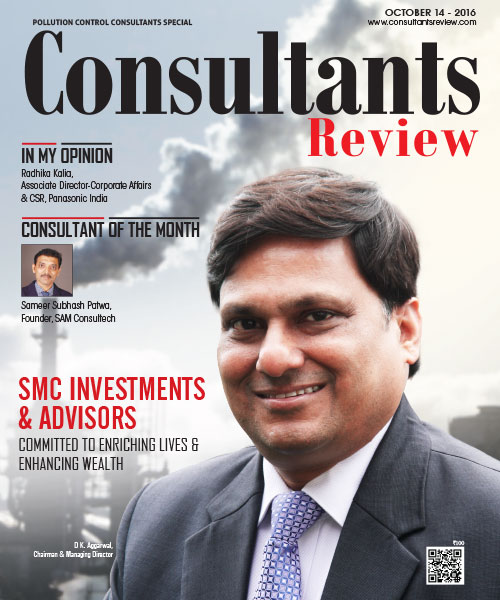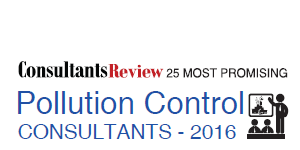Cover Story
25 Most Promising Pollution Control Consultants
Two years ago, the World Health Organisation (WHO) ranked the Indian capital Delhi in a report as the most polluted city in the world in terms of air pollution, even above China's capital Beijing! With the increasing population and the advent of technological advancements, the most important issue that has come up in the country, in the last few decades is the alarming rate of pollution and its adverse effects. Even more, the growth of industrialization has carried the seeds of environmental damage with activities such as manufacturing, processing, transportation and consumption. While water, soil and air are productive assets, the pollution of these assets is leading to adverse degradation of environment. Often, environmental degradation tends to become irreversible and imposes damaging costs on the economy resulting in various...
Contents
-
8
Where Do Gadgets Go to Sleep?
Radhika Kalia, Associate Director-Corporate Affairs & CSR, Panasonic India
-
14
Relevancy of Implementing Proper Pollution Control Solutions in India – A Case Study of Municipal Solid Waste Management
Relevancy of Implementing Proper Pollution Control Solutions in India – A Case Study of Municipal Solid Waste Management
-
22
Pollution Control in India
Purnima Menon, EVP & Chief Marketing Officer & Chief Sustainability Officer, CSS Corp
-
26
Environment Crossroad: India
Shubhanand Mukesh, Head Environment Dept- Associate General Manager
-
30
Do We Deserve Polluted Air and Contaminated Water?
Santosh Shidhaye, Sr. VP, Corporate Sustainability Cell, IL&FS Ltd
-
32
Pollution Control: Need of the Hour
Arvind Bodhankar, Global Head- Sustainability and HSE, Tata Motors
-
36
Then & Now: The Evolution and Growth of Pollution Control
Loveleen Garg, Environment & Sustainability Head, GIFT CITY
-
40
Adopting ESG for Business Sustainability
Shantanu Roy, Managing Principal, Valuelements
-
42
Market Research - Changing Paradigms
Apeksha Lohia, Global Marketing Manager, Intellect Design Arena Ltd
🍪 Do you like Cookies?
We use cookies to ensure you get the best experience on our website. Read more...


